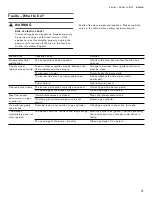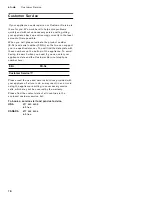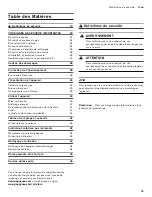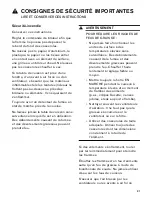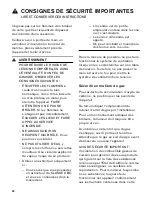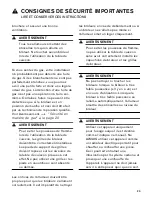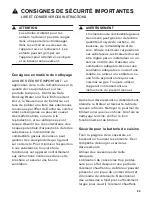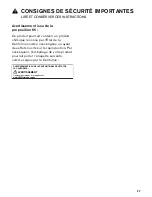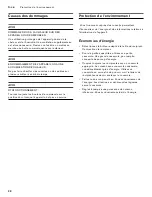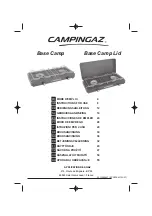
13
Table of settings and tips
en-us
Turning off
Turn the control knob clockwise to position 0.
9
WARNING
Risk of burns!
When the appliance cover is closed, this leads to a
build-up of heat. Only operate or switch on the
appliance when the appliance cover is open. Do
not use the appliance cover for keeping warm or
setting down. Only close the appliance cover once
the appliance has cooled down.
9
CAUTION
Damage to the appliance
Remove spilled liquids before opening the
appliance cover.
Residual heat display
After switching off the appliance, the illuminated ring on
the control knob slowly flashes orange until the appliance
has cooled enough for it to be safe to touch. Do not
touch the appliance while the residual heat indicator is
flashing.
Table of settings and tips
Table of settings and tips
Tips for cooking and roasting
The values in the settings table serve as mere guidelines,
since more or less heat may be required, depending on
the type and condition of the foods, as well as the size
and fullness of the pot.
The high output causes grease and oil to heat up quickly.
Don't leave food unattended while frying; grease can
catch fire and burn the food.
The rear cooking zone should be used to prepare foods
requiring longer cooking times.
For parboiling, frying and deep-frying large portions, you
should use the high-output burner.
Heat
setting
Cooking method Examples
9
Heating
Water, clear soups
Blanching
Vegetables
Deep-fat frying
Fries, baked items
7–9
Searing
Meat
Frying at high
temperatures
Meat, potatoes
6
–8
Simmering with
the lid open
Liquids, pasta
5–7
Baking
Flour-based foods
Frying at medium
temperatures
Poultry, fish
4–5
Frying at low tem-
peratures
Fried sausages,
onions, egg dishes
Defrosting
Frozen food
4
Poaching with the
lid open
Dumplings, boiled
sausages
Warming
Vegetables, soups,
stews
3–4
Braising
Roulades, roasts
Steaming
Vegetables
2– 4
Simmering with
the lid on
Soups, vegetables
1
Soaking
Rice, rice pudding,
cereals

















